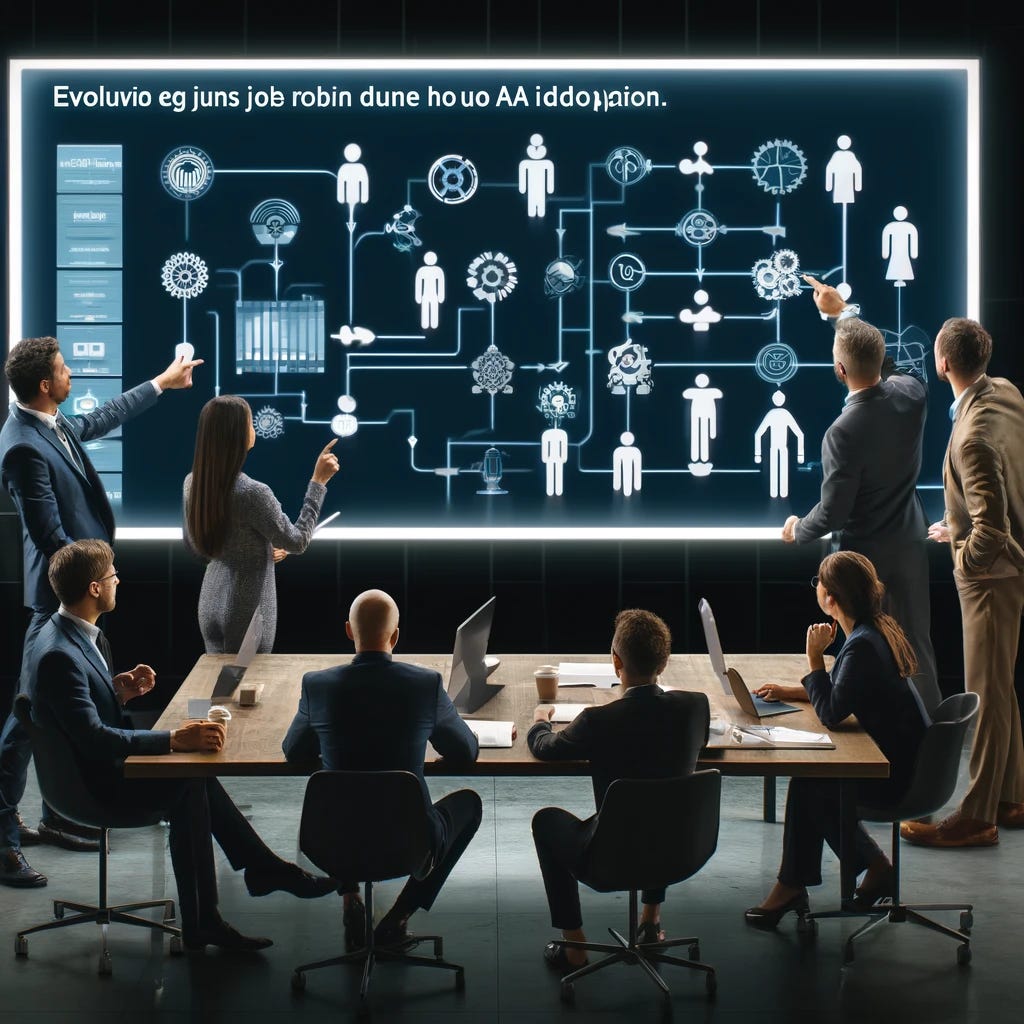Redefining Work: Navigating the AI-Driven Evolution of Job Role
Exploring the nuanced impact of AI on the workforce, from automating traditional tasks to creating dynamic, AI-integrated roles.
I believe the impact of job loss associated with the adoption of AI is going to be far more nuanced than what most expect. While most of the world seems to have automating Call Center Agents’ tasks in the cross-hairs, what about the rest of our jobs?
It should be obvious that if we’re going to automate Quality Assurance, for example, then that role changes dramatically from creating assessments into interpreting them along with calibrating with the LLMs. And if we’re going to start automating analytics, then those jobs morph as well. Now, replay that across every role in an organization.
For example, we’re posting to hire an Analytics Engineer, whose job it will be to manage data from “Prompt-to-People”. In other words, collaborating with stakeholders and clients to identity the insights that can be generated using our AI platform, then optimizing those prompts and data pipelines to ultimately deliver those insights back into the user’s workflow - whether that be through dashboards, call summaries at the agent desktop, or even overseeing specialized knowledge assistants.
The problem is, that every time I draft the job description, we end-up figuring out how to automate another aspect of it, thus shifting what we need before we’ve even hired for it.
In today’s world, I really don’t want to have someone on payroll whose job it is to write SQL queries and manually build dashboards for our customers. That’s slow, painful and expensive now that LLMs can be trained to do a lot of that work for you, and ultimately democratize the whole process.
So, instead of hiring a person to do that, we end-up engineering pieces of it away.
I suspect this is going to play out across every role, in every industry. And with the rapid advancement of embedded assistants and specialized tools with tuned-models, it may happen faster than we think.


